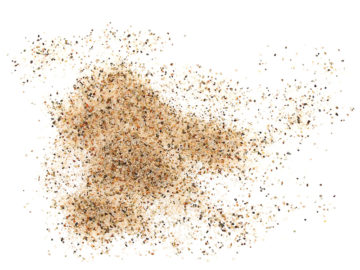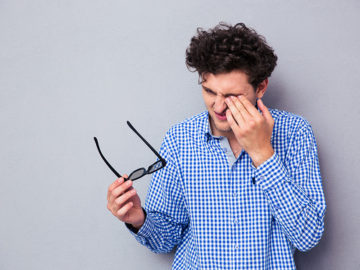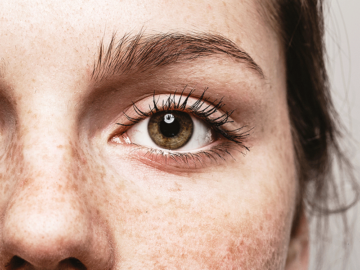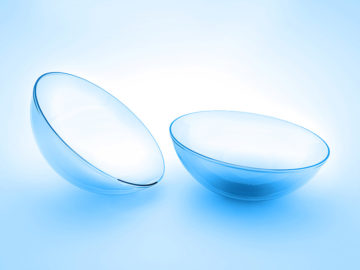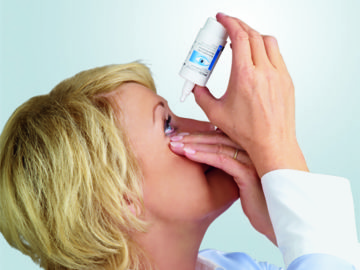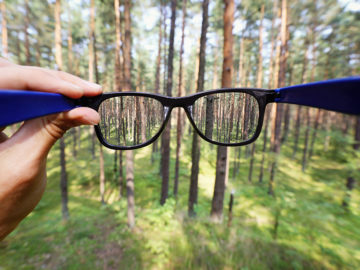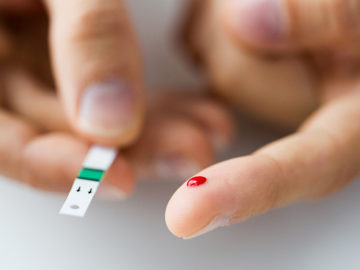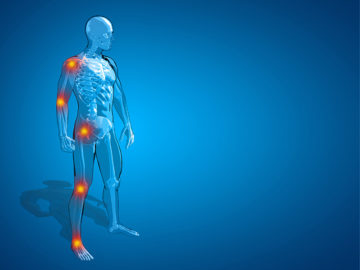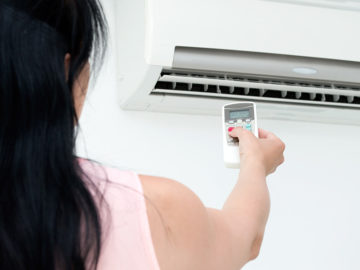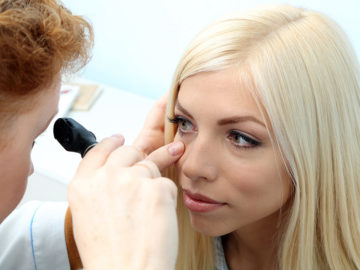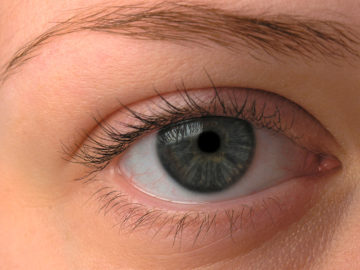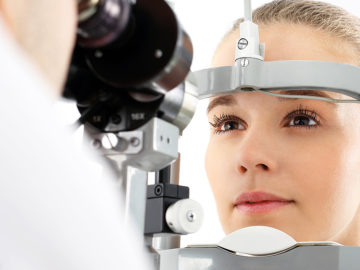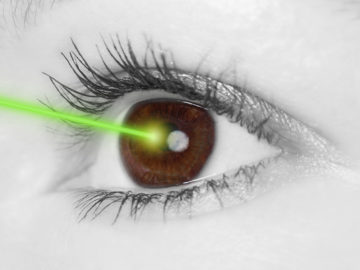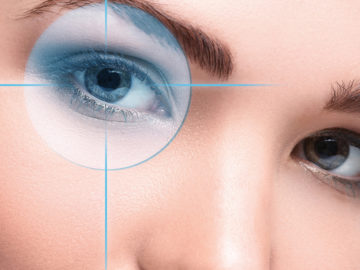Environmental influences and their effect on our eyes
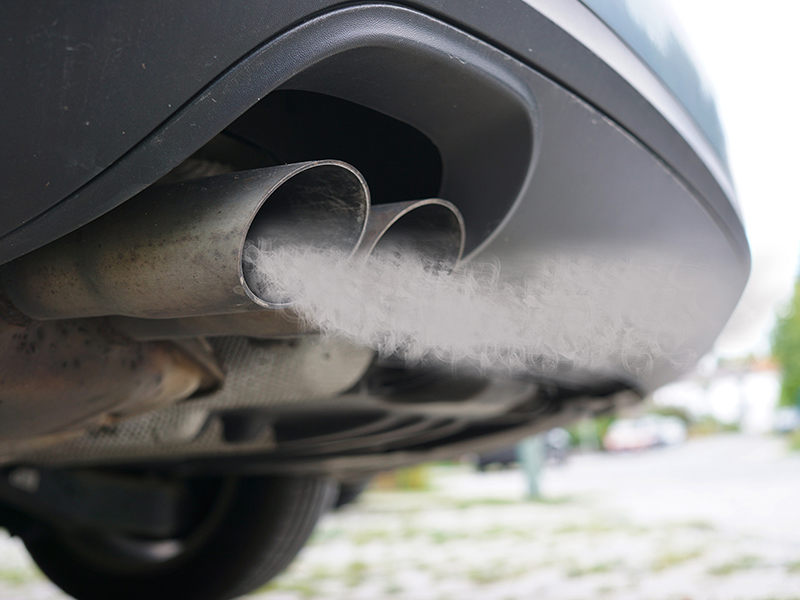
Environmental influences such as exhaust gases can encourage the development of dry eyes.
The eyes dry out if the lacrimal fluid does not moisten them enough. This can be for different reasons but quite often dry eyes can be traced to environmental influences such as exhaust gases or dry ambient air.
Dry eyes: description
There are various glands in the upper lids of the eyes which constantly produce fresh lacrimal fluid. With the aid of a blink, this liquid is spread evenly like an extremely thin film over the eye. When this lacrimal fluid has served its purpose, it is moved to the lacrimal drainage system on the inside of the eyelid margin. This brisk exchange process ensures optimal supply to the cornea, protects the eye against foreign bodies and keeps the surface of the eye moist.
However, if the tears are disrupted in their regeneration, have a faulty composition or evaporate before they have completely lubricated the eye, the tear film ruptures and the cornea and conjunctiva become irritated. The result is the unpleasant feeling of dry eyes (sicca syndrome).
Environmental influences are the most common cause of dry eyes
Dry eyes are most often traced back to impacts from outside, which have a negative influence on the productsion and distribution of lacrimal fluid.
The following factors are harmful to lacrimal fluid and put stress on the eyes:
- The draught from air conditioning systems and dry air from the heating contribute to rapid evaporation of the tear film.
- Long hours in front of a monitor make the eyes “forget” to blink, which leads to them drying out.
- Cigarette smoke and UV light attack the tear film.
- Ozone, fine dust and car exhaust fumes partially damage the components of the tear film.
Dry eyes can also have biological causes. Tear productsion declines with increasing age: around a third of those affected are over 40 years old. Changes in the status of the female sex hormones also increase the risk of suffering from dry eyes.
A range of medicines can also contribute to having dry eyes. These include beta blockers against high blood pressure, sedatives, eye drops with preserving agents and the contraceptive pill.
Symptoms: dry eyes produce these symptoms
People affected complain of different symptoms:
- Red eyes
- Burning eyes
- Foreign body sensation in the eye
- Tired eyes
- Itching
- Sticky eyes
- Watery eyes
- Aching eyes
- Blurred vision
This helps with dry eyes
Eye lubricants in the form of drops or ointment are used against dry eyes. They extend the time until the tear film ruptures. The lubrication products can be administered to the dry eye as required several times a day. Protective eye ointments are best suited for the night. When making a purchase, ensure that the medicine does not contain preserving agents as these would only reinforce the dryness in the eye or possibly provoke allergies.
Lubricating eye drops which support the tear film and are free from preserving agents are best suited for people who suffer from mild, non-permanent symptoms of lubrication dysfunction. HYLO FRESH® replenishes lost moistness in tired and stressed eyes and relieves irritation in the eyes which arises from environmental impacts such as dry ambient air, draughts or working at a monitor. The classic HYLO COMOD®. is well-suited for moderate forms of dry eyes. In 2011, HYLO COMOD® was rated as very good by Öko-Test, the German consumer magazine1. The lubricating eye drops give a long-lasting boost to the tear film.
Eye ointments especially developed for the demands of dry eyes provide regeneration at night. VitA POS® eye ointment with vitamin A supplies the eye with lasting moistness and thus regenerates the cornea and the conjunctiva. VitA-POS® can be applied at all stages of dry eyes. PARIN POS® provides intensive care for very dry and stressed eyes.
If, despite regular use of eye drops or eye ointments, there is no improvement after three days of treatment or severe pain or pus secretion develop, you should immediately consult an eye doctor. They can clarify if there is a serious eye disease behind the symptoms.
Prevent dry eyes – avoid environmental influences
You can also do something to prevent dry eyes in addition to using eye drops and ointments. Just follow these simple rules:
- Try to avoid the draught from air-conditioning. When travelling by car, you should also ensure that the blower is not aimed directly at your eyes.
- Avoid cigarette smoke.
- If you work for several hours a day at a computer, you should regularly give your eyes a break. It’s a good idea to look out of the window every now and then and blink repeatedly for ten seconds in order to moisten your eyes with lacrimal fluid.
- Make sure you have fresh air in the room. It is enough to ventilate every hour.
- It is important to drink sufficient amounts of liquids – at least two litres a day. Contact lens wearers, in particular, should take care not to leave their lenses in their eyes for too long, as they also have a dehydrating effect. Give your eyes a treat with regular breaks: for example, wear glasses instead of contact lenses when working at a computer. Also, make sure that you clean lenses conscientiously and store them properly. That is the only way to enjoy using them.
1 ÖKO-TEST Issue 3/2011


